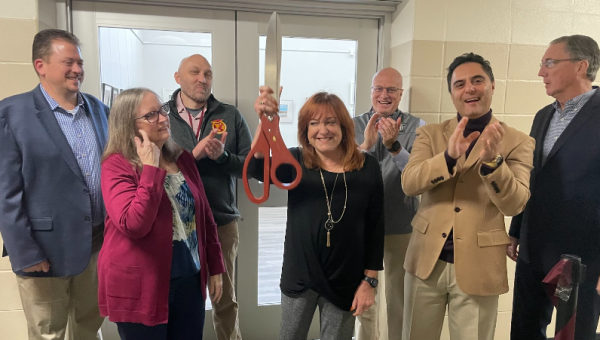Goodnight, Sleep Tight…
Do you find yourself looking forward to taking a nap or promising yourself that tonight you will try to get to bed earlier? The recommended amount of sleep for teens ages 14-17 years old is eight to ten hours, but how many of us are actually meeting the recommended hours? Sleep deprivation is one of the most prominent factors leading to risky behaviors and an overall lack of focus in day-to-day activities.
Juggling all of the different demands adolescence has to offer makes getting enough sleep nearly impossible for teenagers across the country, if not worldwide. Academic and athletic commitments are usually the main suspects and there is a heavy price to pay for students who choose to engage in them. Sophomore Natalie Ugenti attributes her late arrival at home as being “due to [her] involvement on a sports team” and is almost always “buried in homework.” Natalie feels that the myriad of extracurriculars and assignments on her plate “give her nearly no time to unwind and de-stress before bed.” Not getting enough shut-eye or time to relax makes it easy to lose focus and not function your best the following day but there never seems to be enough time to play catch-up with the hours you’ve missed. Sleep is essential for a person’s health and well being, playing a vital role in controlling decision making, problem solving, and monitoring hormone functions, according to the National Sleep Foundation.
Natalie is not the only Whitman student lacking sleep, with sophomore Josh Muellers contributing to the discussion. He cites homework and studying as his main reasons for not getting enough sleep. Josh wishes he could go to bed earlier in order to get the recommended amount of sleep needed, but finds that “when the time comes for me to go to bed in order to get a good night’s sleep, [he’s] not tired.” Dr. Judith A. Owens, Pediatric Sleep Specialist at Children’s National Health System in Washington speaks on the dangers of sleep deprivation, acknowledging that “lack of sleep could be fatal” and its “level of impairment” on driving skills is “equivalent to driving drunk.” With most students at Walt Whitman High School on their way to getting their driver’s licenses, this is a serious concern that needs to be addressed by parents and community members.
Pressure to have it all, including good grades, a booming social calendar and extra curriculars, often infringes on the amount of sleep students receive. The larger effects of foregoing a restful night might not be immediately apparent but often catch up with teens in the future. Junior Mabel Bassi says if she doesn’t get enough sleep, she will be extremely hyper for the whole day. She explained that once the cycle catches up to her, Mabel will feel “dull and unfocused.” When asked if she has begun to feel more tired since the start of this school year, Mabel replied, “ I already feel like I am sleep deprived,” and seems to always be “patiently waiting” for when she can sleep in late and recuperate from the week’s late nights and early mornings. Unfortunately, what few people are aware of is that humans can never recover lost sleep. Many students rely on the weekends to catch up on lost zzzz’s, but according to Miss Alex Agostini, research assistant at the University of South Australia Center for Sleep, sleep deprived adolescents did not recover to baseline levels even after a refreshing 10 hours of sleep.
Next time you’re about to pull another all-nighter or stay up to binge watch your new favorite tv show, just remember how you felt when you woke up this morning.





